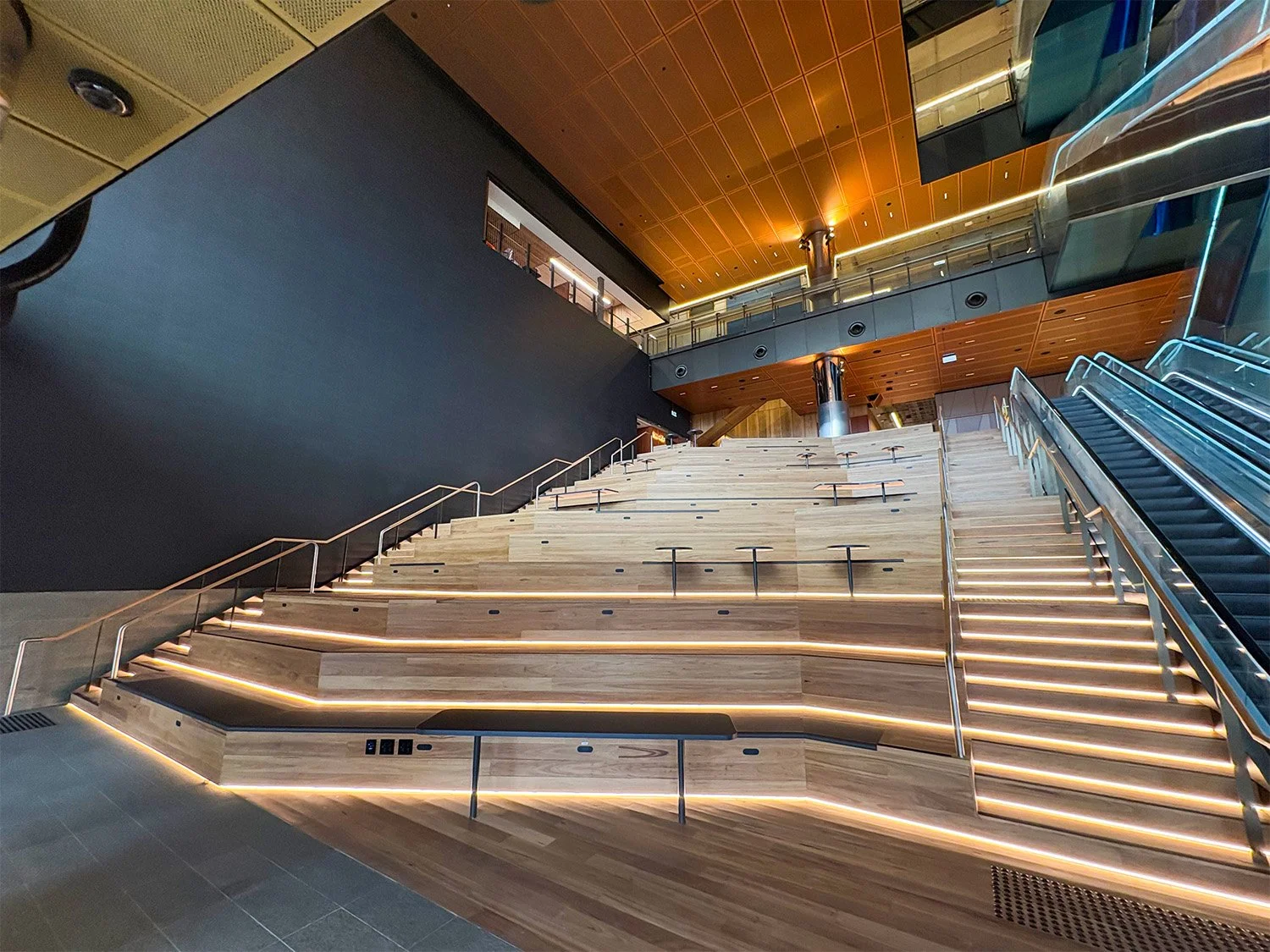Georges Méliès Campus
A significant university campus development, with four floors of university teaching space and one floor as a dedicated business hub.
The €30.5m project designed by Christophe Gulizzi Architecte, will service over 1,100 students studying a range of creative disciplines including journalism, film production and audio-visual design. The architecture reflects latest pedagogical practice, with spaces designed to inspire creativity and interaction.
Ground floor
The ground floor of the building is designed as a vast 7m high hall, which links the spaces between the university and the business hub. Shared spaces between the university and business hub include:
A film set and control room
Two large sets equipped for dance, choreography, theatre and film production
An auditorium
An amphitheatre
A learning centre & café
Mezzanine
The mezzanine level hosts specialised recording and mixing spaces such as recording studios with control rooms, a multi-channel mixing room, a radio studio and video editing studios. It also hosts co-working and meeting rooms, image and sound editing studios for the business hub, as well as examination rooms, a gym and an editing room for the university.
Upper floors
The upper floors provide university teaching spaces, with offices, classrooms and an amphitheatre. The office spaces of the Business Hub are also located on the upper levels.
CLIENT
City of Cannes
LOCATION
Cannes, France
COMPLETED
2020
Our Scope
Marshall Day Acoustics was engaged to provide the acoustic design for all aspects of the building, including sound insulation, services, room acoustics and environmental noise compliance.
CHALLENGES
Our collaborative design approach, working alongside the architect and design team, meant that the acoustic technical aspects were integrated into the architectural design from the project’s inception. For example, the building has very limited number of parallel walls, enabling the creation of unusual volumes without affecting the functionality of the spaces. In addition, the project comprises almost no "boxes in box" volumes. This has been made possible through innovative architectural design solutions which reach the very limits of possibilities offered by standard construction systems.
Innovative solutions were necessary to accommodate the requirements of the brief and the architect's desire for a strong presence of rough concrete, which acoustically is a highly reflective material. In the large hall we designed a custom perforated concrete ceiling to reduce reverberation times whilst maintaining the integrity of the architectural aesthetic.
With regard to the sound insulation and room acoustics requirements, mixing and recording studios were designed for professional












